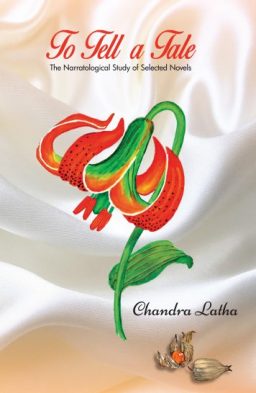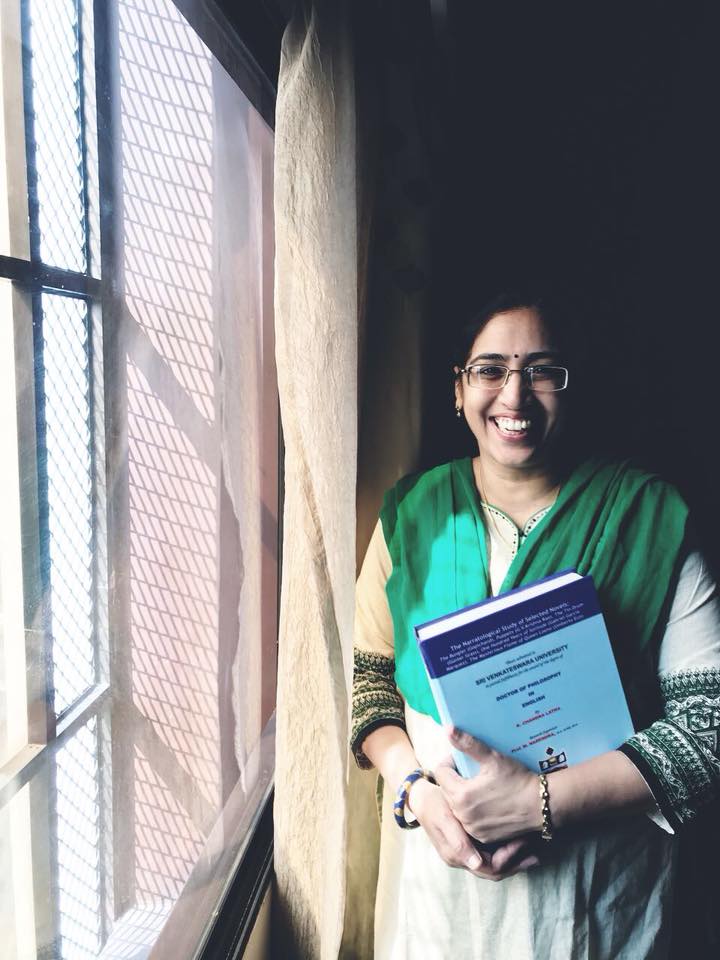
To tell a tale-18
(Chapter-3 Part-4)
-Chandra Latha
The dilemma is that which class does Chandrashekharam belong? The oppressed or the oppressing? It reflects the dual nature and the split personality of Chandrashekharam. His reaction to his father-in-law‘s death is different from his reaction to his child’s death. He starts attributing his child’s death to Pullayya. Ammayamma’s proposal to take care of his children makes him more crazy. He starts openly criticising through his writings to news papers about them and starts scheming processions and strikes. He is victim of different emotions like failure, ego, incompetence, idealism, kindness and non- repentance.
Dr.Sastry, a learned idealist and embodiment of morals, also errs. When Pullayya’s accountant, Satyanrayana Pantulu’s house is burnt, Sastry invites Panthulu’s family to stay at his house. Polayya, an uneducated simpleton warns him to send the family out of the house. But, the doctor does not anticipate any thing in advance. Padma goes to him and he thinks that it is only a dream as Padma’s mysterious replies confirm that it is dream and continues to believe it until Padma reveals that she was pregnant with his child.
Malathi rightly analyses, “To me, the entire incident is a bit dramatic. That Vasudeva Sastry, a doctor by profession and rational thinker, would not know whether he had sex in reality is strange. Secondly, after learning that Padma was carrying his child, he suggests a solution without taking into consideration what effect it would have on Padma’s husband and their child. Is that really a socially responsible, rational suggestion.” (Malathi Nidadavolu. http://thulika.net/?p=906) But R.S.Sudarsanam suggests that the author made Vasudeva Sastry his mouthpiece in order to express his own opinions. But the psychological disturbance that he undergoes asserts that he is just more a character than the mouthpiece of the novelist.
Puppets is a testimony of the narrative mastery of Krishna Rao. In the chapter 30 in which the Doctor wants to commit suicide can be cited as an example to it.
“Impossible. His diagnosis must be wrong. If what it was, then his knowledge had to be wrong. If what he had been practising all these days was not medicine but jugglery, deception of the world!” (Puppets, P.169)
The doctor was astounded. (Never would he imagine that he would do such a thing) (Puppets, Pg.169)
The doctor did not speak. (Padma hastened out of the room.) (Puppets, Pg.170)
The doctor slapped her with all his might. (who has ruined my family? Wasn’t it you > otherwise, why should I come to such fate? Says Padma) (Puppets, Pg.171)
The doctor’s hands touch her feet. (Her hands were ruffling his hair. “How good it would be if all this was a dream!”) (Puppets, Pg. 171)
The doctor was dazed, he could not see the room or Padma.(He would have fallen flat , had not Padma held him.) (Puppets, Pg.171)
The doctor “slowly stood up and held her hands as she stood, head bowed. (So the dream about coffee cup was not a lie. “/“No.”) (Puppets, Pg.171)
The doctor seem to hear the burst of laughter. (The penance (tapas) he intended to perform was shattered .His ideals were rooted out.) (Puppets, Pg.173)
The doctor thought about suicide. (Hang himself –thought it would be inconvenience for his neighbours. Take cyanide – thought about how Pantulu would kill Padma and then kill himself and the children orphaned.) (Puppets, Pg.173)
The doctor left the house and on his way his met Kusalayya, a small farmer. The doctor felt the revelation of life (How simple life can be! His (Kusalayya’s) whole body drenched in sweat. How guileless was that life! How unsullified ! How blessed!”) (Puppets, Pg.174)
The doctor thought Padma bore “only desire and affection” The doctor went to see Lalitha (Who was an orphan like himself .Her father and hanged ,brother left to Nijam, husband in jail.) (Puppets, Pg.176)
The doctor assures her (that he not different from her father.) (Puppets, Pg.176)
The doctor found his own company unbearable. The doctor tries to suppress his own anxiety and sorrow (by extending comfort to another.)
The doctor gets philosophical when he finds Lalitha in such condition. (Why believe that dharma would always win in this world? No, that was a blind belief. Only might wins. Either physical or financial or social, but not the might of the dharma) (Puppets, Pg.176)
When he returned home. Doctor proposes two solutions to Padma. (1.To approach pantulu seeking his pardon. 2.To marry Padma with his child. Padma denies both. She says she lacks courage) (Puppets, Pg.177)
The doctor gives her medicine and asks her to leave the place. The doctor leaves the village without a word.(Nobody could probably know why?) and who thought he wouldn’t sustain the guilt overcomes his guilt conscious by looking around him for much bigger issues. (Puppets, Pg.178)
R.S.Sudarhsanam thinks that “Vasudeva Sastry took responsibility for the mistake and was prepared to correct it socially.” Refuting this opinion. Malati Nidadavolu argues, “Vasudeva Sastry suggest they elope. Padma refuses to elope with him. Sastry screams that she was a typical Hindu woman; apparently, he was expressing his “righteous” anger. But, he suggests a solution without taking into consideration what effect it would have on Padma’s husband and their child .Is that really a socially responsible, rational suggestion?”(Malathi Nidadavolu. http://thulika.net/?p=906)
It is not the social responsibility that made Sastry to move to the near town, leaving the village that he never wanted to leave even when he is hit by the Malabar Police and is frequently requested by his town doctor friend.
He fails to be a in mediator between Pullayya and Chandrashekharam, fails in understanding the delirious talk of Laxmamma, fails in realising the agony of Pantulu and his family. His guilt conscious is unburdened only after Padma approaches him and agrees his earlier proposal. He immediately blames her as he realizes that she wants her husband’s sanity to be cured more than anything else. His unburdens his heart is by blaming Padma as the sole responsibility of the incident and the aftermath. He is much annoyed with the fact that she is the reason he broke his penance of singlehood and he confesses his wife who passed away long ago. His conscious is made pure and he takes his social decisions and moves on to live a new life in the town.
Krishnarao’s satire on Sastry begins right from the introduction. Sastry completed his allopathic or English Medicine and reaches the village driven by the great ideals of the period to serve the rural India. He displaces Achari ,the existing Indian doctor who practices ayurveda, the Indian medicine. But, nobody knows why he left allopathy and started practicing homeopathy. Ironically, the villagers were suspicious to receive him. They don’t even consider his ideological decision to heal them, they suspect the validity of his degree, they rumour some mystery that has driven him to a remote place or a crime he is trying to evade.
*****
(Contd..)

Chandra Latha, writer from Nellore won Telugu Association of North America award in 1997 for the novel “Regadi vittulu”. Her other novels are Vardhani(1995) and Vallu veellu paarijaataalu (2011). Her short fiction includes nearly 80 stories compiled in nenu nanna navutha (1996),Idam shareeram (2003) and vivarnam(2007). Her non-fiction are (Fish can fly!) ”vacche daretu(2010), itanala kadaku eeboothi boTlu(2010). And also published her blogposts in a book madata pejee(2010).
